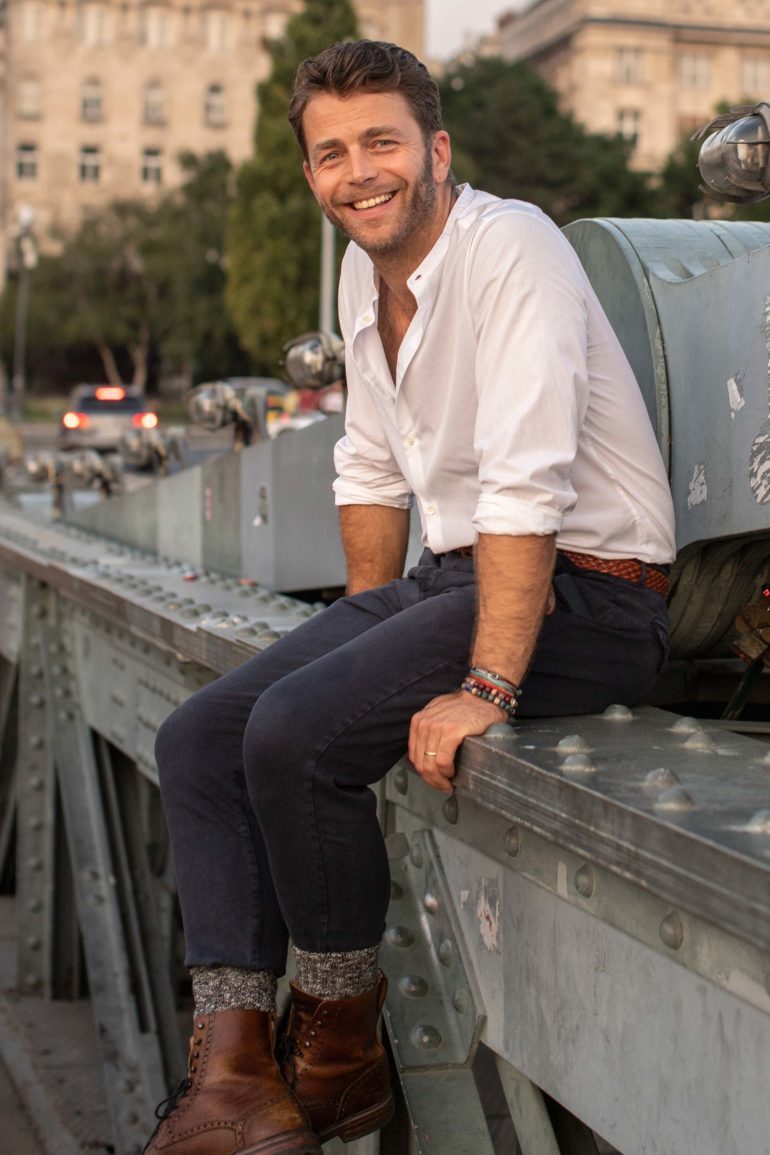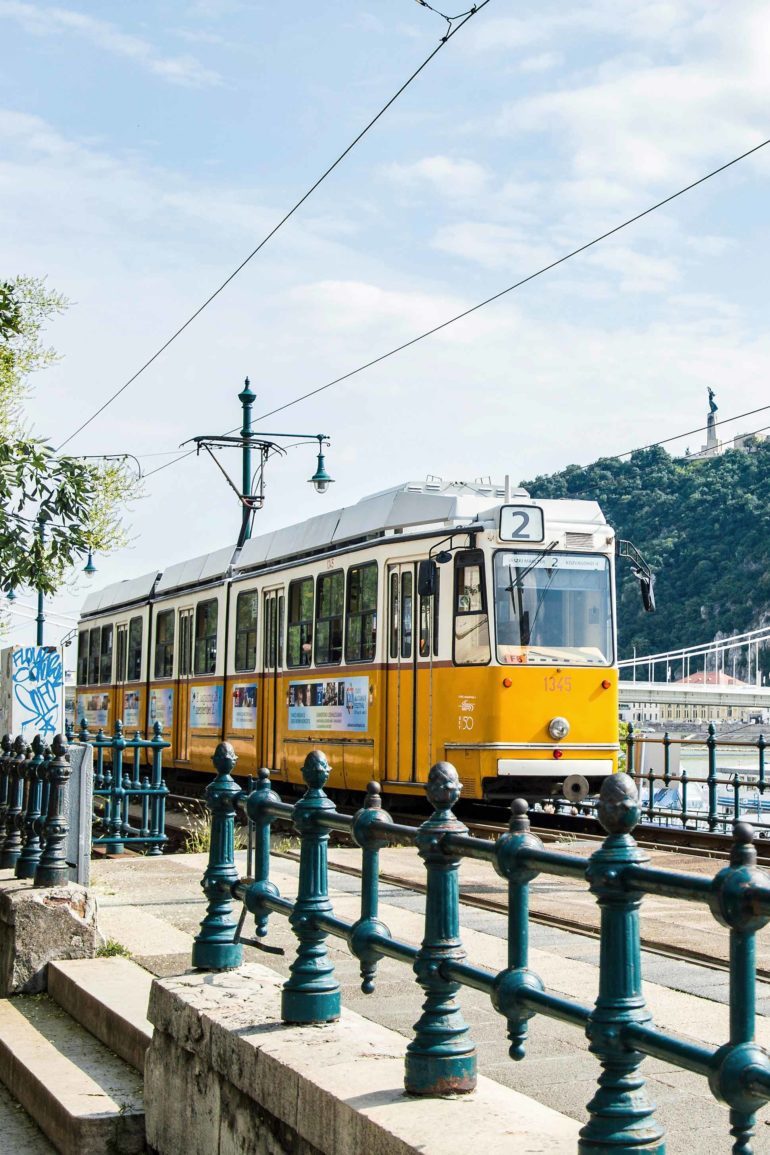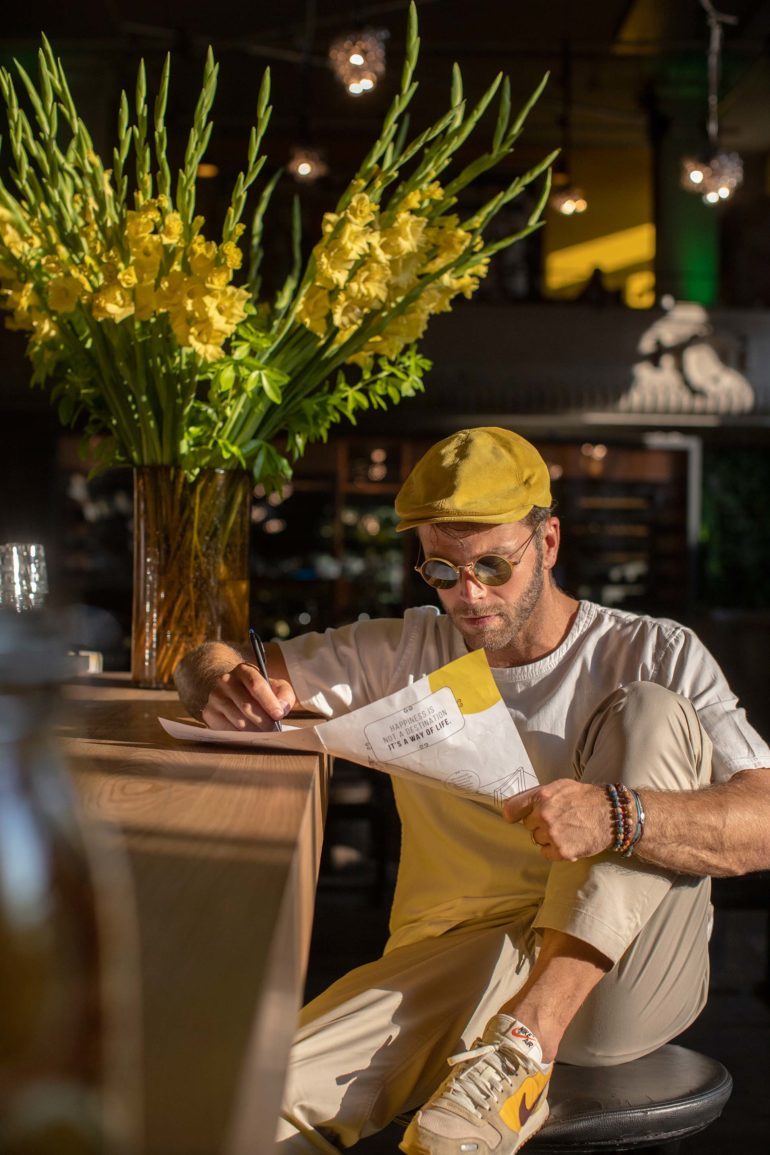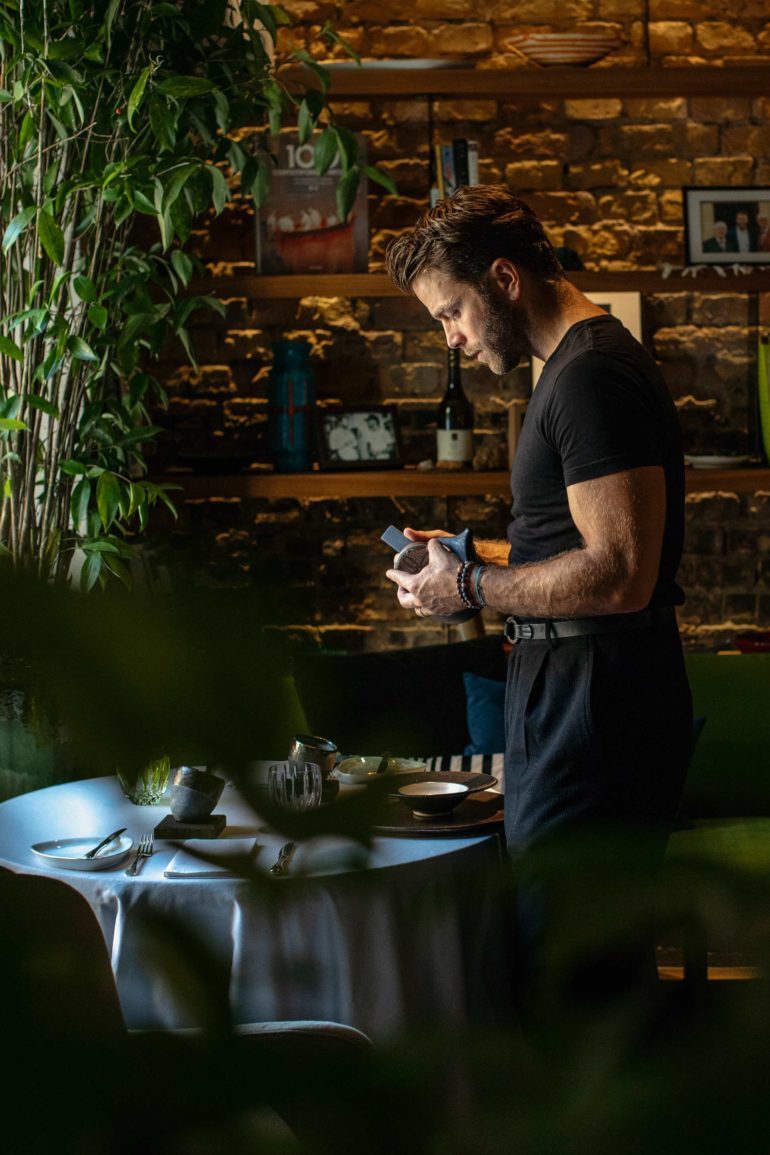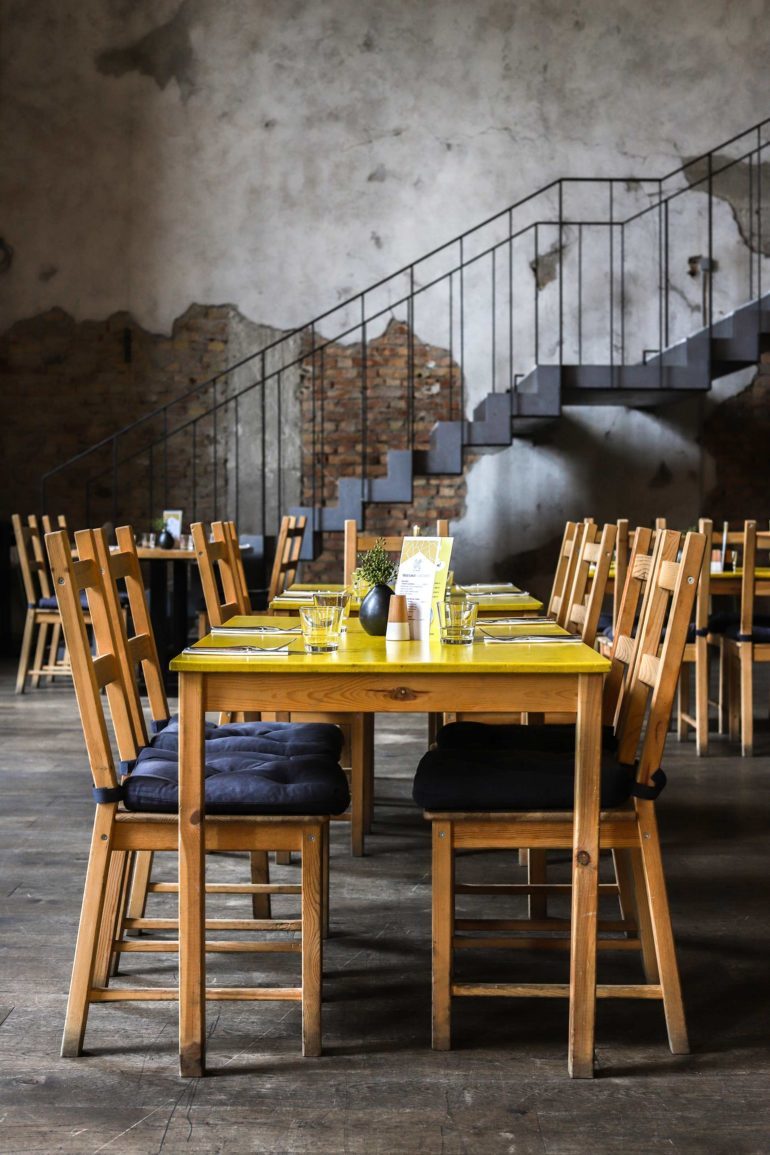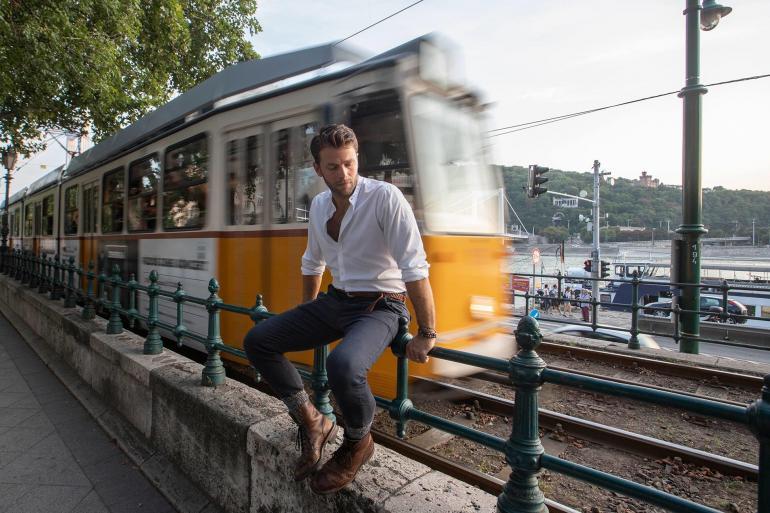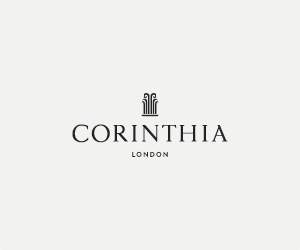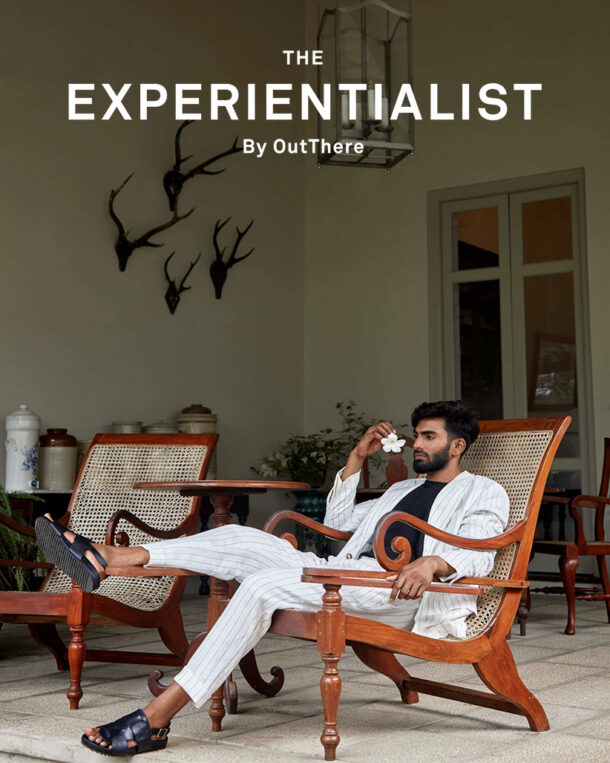“I trust my chefs and sommeliers to do what they do better than I can. I give them freedom and learn from them. I try to be the oil between the wheels, to support their vision and communicate what they are doing through the guest experience.”
Too modest to accept my suggestion that his contribution to Budapest’s burgeoning hospitality scene has been unique, Hubert concedes that in terms of this attitude he was ‘possibly quite alone. But if we don’t make a change, who else will and why wait?’
The same positivity also guides Hubert’s personal life. With a mixture of Russian, Armenian, German and Slav roots, his family on both his mother’s and father’s sides were of aristocratic stock and lost everything under Communism. One of five siblings, Hubert grew up in Budapest’s leafy District III. He got a taste for the dynamics of business as a child, helping his ‘slightly bohemian’ mother sell decorations at the Római open-air baths and working for free at a local grocery shop. Still an avid nature-lover today, he first bonded with the Hungarian countryside at the horse-riding farm for children his father ran just north of the city.
He came out to his by-then-divorced parents aged 20 and, while his mother accepted his sexuality straight away, his father could not and he and Hubert were estranged for 15 years.
“Things are changing now, but there has been a lot of homophobia in Hungarian culture, based on portrayals in the media, political attitudes and negative hearsay. So it was hard at first to accept myself. But I don’t like hate, so if someone gave me a hard time or I saw them giving someone else gay a hard time, I’d confront them: ‘What’s your problem?’ And they weren’t used to that.”
Over the following years, Hubert’s growing self-assurance crystallised into a resolve to be himself and live his life as the normal, equal individual he understood himself to be, while working hard to make a positive contribution to the life of the city.
“I have many straight friends who were homophobic simply because they didn’t know anyone gay and believed what they’d heard. They learnt that I’m just normal, no better or worse than anyone else. And so understanding spreads, the positive bubble grows and there is less hate.”
When we meet, Hubert is visibly glowing from his recent marriage to long-term partner, neurosurgeon László Szegedi, at an idyllic, barefoot, clifftop ceremony in Malibu, under Californian law. Registered partnerships for same-sex couples were legalised in Hungary in 2009, but same-sex marriage remains taboo. The images of the wedding Hubert posted on Instagram were intended both to share the couple’s joy with his 14,000 followers and to offer hope to LGBTQ people who are not yet enjoying such freedoms.
Hubert’s extremely quick, however, to temper my suggestion that he and his husband László intend to lead by example.
“I don’t want to lead. I just want to show that gay people can do anything anyone else can and that, although many people still believe we are not equal and don’t deserve to be happy, you can be different, love and accept yourself and have the life you want.”
He’s hopeful too about increased integration and the potential for better LGBTQ rights in Hungary. Simply by living openly as out gay men, he and László believe they have changed tens, perhaps even hundreds, of homophobic mindsets in their social and professional orbits and that a new generation is growing up free of many of their country’s traditional prejudices.
Hubert’s one foray to date into gay-targeted hospitality was a bold expression of faith in a sexually egalitarian future, the mixed, fiercely glamorous club Tütü. His challenge to a gay scene accustomed to self-ghettoising, hidden in rainbow-branded dive bars and clubs, Tütü took around a year to really take off, but eventually achieved its mission of celebratory, inclusive hedonism with a generous side of raunchy pansexual cabaret. Hubert sees it as a significant factor in Budapest nightlife’s growing liberalisation and, although the club closed in 2017 owing to some issues with the landlord, ‘the Tütü brand is in an envelope in my pocket, waiting for a comeback’.
Right now, Hubert is enjoying being part of a cultural regeneration he couldn’t even have dreamt of when he started his career.
“I see Budapest today where Barcelona was about 10 years ago. It’s exploding with potential. There is a lot of creativity and fresh thinking in this country and now that we are welcoming so many visitors, we are learning to be more and more multicultural and open-minded, as well as gaining pride in our national identity. We are learning to value and celebrate all our differences and I think that’s what’s making Budapest a world-class destination, as it used to be for aristocratic travellers back in the Twenties and Thirties.
“Underground culture – in the bar scene and music venues – is booming and the city has made fantastic investments recently in classical arts and historic areas, so that opera, ballet, modern dance and contemporary art can all grow.
“There’s healthy competition now in culture and hospitality – everyone wants to be a little better – and I hope our leaders encourage these trends, because everyone is feeling the benefits of the city’s new lease of life and are prouder of who they are. And if attitudes change here, they’ll slowly change across the whole country.”
Hubert’s own plans include expanding the endeavours of his foundation Helping Angels, which works to relieve homelessness in the city, among other causes, and finding a bigger apartment where he and László can raise children and he can expand his collection of works by his close friend, the celebrated Hungarian artist and former partner of Yoko Ono, Sam Havadtoy. He also wants to develop a boutique farm-stay on land 40 minutes north of Budapest left to him by his father, where he’s already growing produce for his restaurants.
“My father moved on in the end from the attitudes society had taught him. He got in touch to tell me he loved and missed me and we became very close in the last years of his life. He died in my arms, in fact. So, a sad story, but a beautiful one, too.”
www.babel-budapest.hu | www.kiosk-budapest.com | www.piazzabudapest.com | www.leo-budapest.hu
Photography by Attila Boldog and Arvydas Venckus
At OutThere, we believe in boundless travel. But we understand that some destinations can pose challenges to travellers that complicate visiting them. We advise all visitors to inform themselves about local legislation and customs, and to work with a trusted travel provider in order to ensure a safe and pleasant holiday.


